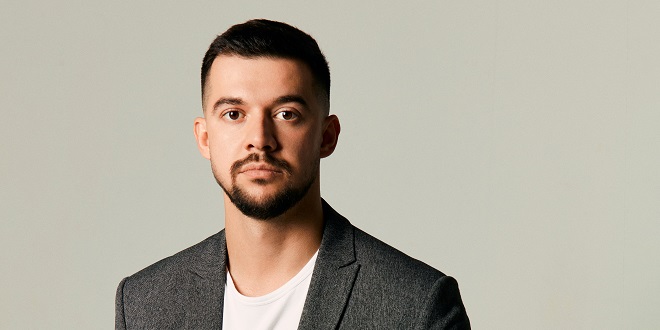Esports grew exponentially during the pandemic with fewer other betting options available, but will it retain its player base as more traditional sports return?
Alex Iaroshenko, CEO at Betbazar, helps us deep dive into last year’s esports performance, before suggesting that those operators not yet onboard can still enjoy ‘the rest of the party’.
He also covers Counter Strike’s continued popularity, promising player demographics and how it will stand alongside big ‘mainstream’ sporting events such as Euro 2020.
SBC: Esports has already been around for a few years – but how much of an impact did it have last year, and what has retention looked like since? Were many customers from last year just transient sports punters looking for entertainment?
AI: Last year marked a real chance to see a glimpse of esports’ ongoing potential. Sports simulators, in particular, had quite an impact, which hasn’t been fully appreciated in the sector just yet. Games like FIFA, PES, NBA 2K and NHL played a huge role in giving bettors a source of excitement during lockdown.
Games like Counter Strike, DOTA 2, League of Legends and Fortnite remain popular, but sport-based games definitely saw the lion’s share.
This wasn’t punters turning to esports because there was nothing else, rather it was them finding a new form of entertainment that many will stay loyal to. But they obviously need to be offered a good quality product to do so and that creates a huge opportunity for operators.
The numbers are certainly promising and show what kind of retention we’re dealing with here. Before last year, our clients had around 5% of bets placed on electronic football leagues.
During the pandemic, it was close to 40%. Naturally, we expect that number to decrease as sports come back, but we are realistically expecting to retain 15-18% of the share.
SBC: What demographics are proving key to this growth and why? How much are these demographics betting on other ‘mainstream’ markets such as football?
AI: The two main demographics are those who were interested in esports before the pandemic and those who joined during it. Those already interested tend to enjoy the Battle Royale and deathmatch-style games, including Counter-Strike and Fortnite. They are typically under 35 and are used to playing these games and will continue to be interested post-COVID.
The second group is those who subsequently joined and tend to be drawn to sports simulators. They aren’t big fans of RNG games such as slots and tend not to like virtuals either. The question is how to keep this group engaged going forward.
A really important factor is to make it clear to the player that the game is happening in real time and they aren’t watching a recorded one. As a result, a stream of the players in-game is important to communicate that sense of here-and-now, as well as the thrill of getting involved in the live action.
We also have a schedule of the games and the players for each event on our partners’ website so bettors can check ahead of time. Just like you’ll see in the likes of horse racing and US prop-bets, it’s all about the statistics and form – which is why we’ve emulated that by providing the same historical statistics for esports players, and it’s proven incredibly popular.
SBC: How lucrative are such markets for operators? What would be your message to sportsbooks who are not yet taking esports onboard?
AI: It is much easier to entice Gen Z and younger millennials to enjoy and bet on esports than casino. Older punters will always be more drawn to casino and traditional sports given their heritage, but given the new generation has grown up in the world of video gaming – esports speaks to them far more clearly. We could be seeing better quality in the broadcast of the games to help monetise this.
Pinnacle, for example, has done wonders with esports – and I expect to see innovators such as them (and others) start to invest in the streaming space as it will be key to the esports growth. After all, there’s nothing better for engagement than a truly immersive experience.
Of course, looking at retention since the cancellation of sport, last year’s surge has driven awareness and those invested in it will see the dividends from this. My message to sportsbook operators is that even if you are late to the party, you can still enjoy the rest of the party. It’s an excellent high-velocity product that still has a great deal of potential to disrupt. There’s still a huge untapped customer base who have every reason to get involved given the fast-paced action it offers.
SBC: Looking at last year’s events, how fast were operators to identify esports as an emerging trend that held more cross-sell potential than the likes of virtuals and slots?
AI: Fortuna was one of the fastest to see the signs, as well as a number of UK operators including BetVictor and William Hill. Others such as bet365 were already showing esports (sport simulations in particular) some attention but when the pandemic started, they put a lot more into it.
Naturally, when these big names started to push it more, we saw a lot of smaller operators take it on as well. Of course, our key clients in CIS like Parimatch, Fonbet and Marathon were also very quick to react and that speedy decision making proved very fruitful for them.
SBC: And then looking ahead to this summer, how much potential will esports hold during the major summer action? Do we see an inverse relationship to last year in that with more ‘mainstream’ sport, there will be less interest in esports?
AI: This summer will be an important step in the evolution of esports as we will see how it exists in the market as something people choose to do when there are other options. Most notably, we will have the Euros this year and we can expect to see a synergistic relationship between the tournament and esports rather than a competitive one.
The fans who watch and bet on esports football are football fans first and esports fans second. In the excitement of the tournament, they will want something to hold their attention between matches. This is where sportsbook operators have a great opportunity to cross-sell on the two platforms – as esports offers the exact fast, easily-enjoyed content that will be essential during breaks.
We’ve already seen this kind of behaviour with older bettors tuning into events like horse racing between the big matches. It will be the same dynamic but for a younger, more tech-savvy audience. Gen Z players considering betting for the first time during the Euros are a lot more likely to be familiar with video gaming than they are horse racing, given the amount of jargon and unfamiliar concepts.
This is a phenomenon that operators could benefit hugely from, and be able to reap the rewards from a vertical that in many ways, needs little introduction to players given how big a part these games play in this generation’s culture.
SBC: Last but not least, if we look at the overall esports scene, what’s your vision for a normal 2022 calendar of events?
AI: Nothing will be postponed in real life (I hope!), so that’s great. I also definitely expect to see more of the kind of synergy between major events and esports. I think we can also be confident that events like the Winter Olympics, the Super Bowl and the Six Nations will inspire a flurry of activity.
Looking at events, we’ll likely see a far more stacked calendar for 2022 when it comes to tournaments and the like. With International, Majors, DreamHack and ESL likely to retain loads of attention. And many more new tournaments taking their share of audience attention, with the Snow Sweet Snow #1 tournament organised by Relog Media being a particularly good example.
One space I think we’ll especially see growth in will be a far more diverse spread of events available for betting among tier 2-3 teams. There’s a number of reasons for this:
The first is of course due to the growing popularity and overall audience of esports, with far more stats and data now available for tier 2-3 teams, making betting far more predictable on them.
The second, however, is very interesting, and I predict we’ll see a surge in new brands (labels and verticals) vying for popularity. Valorant in particular should have plenty of interest this year and we will see if it hits or misses fickle audience love.









